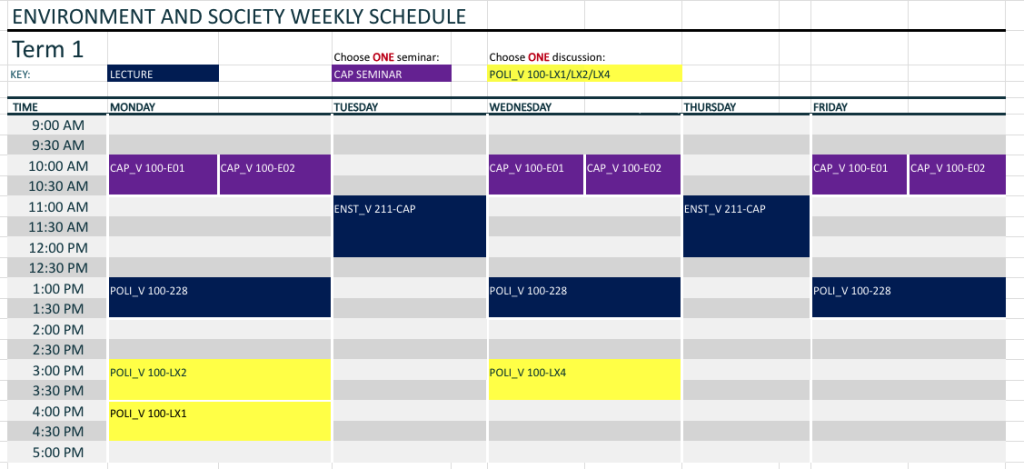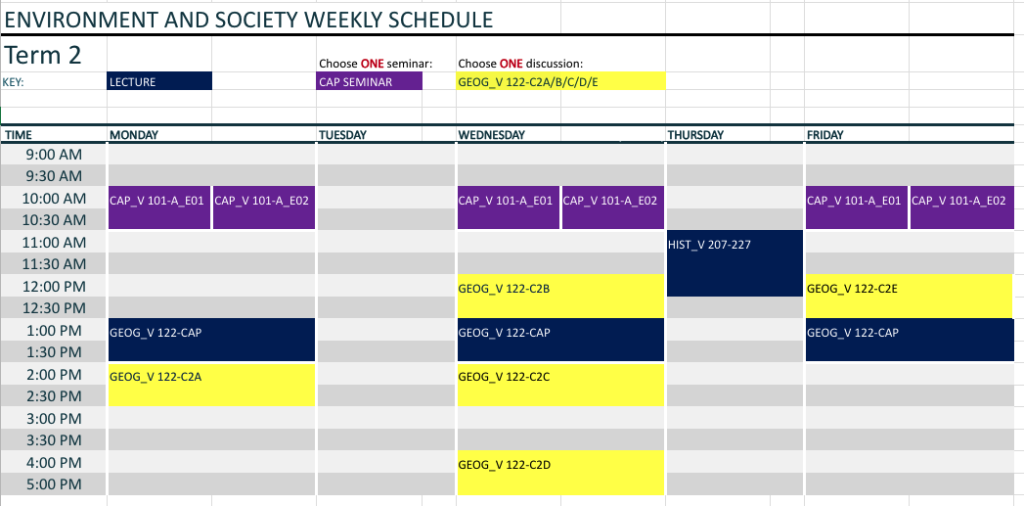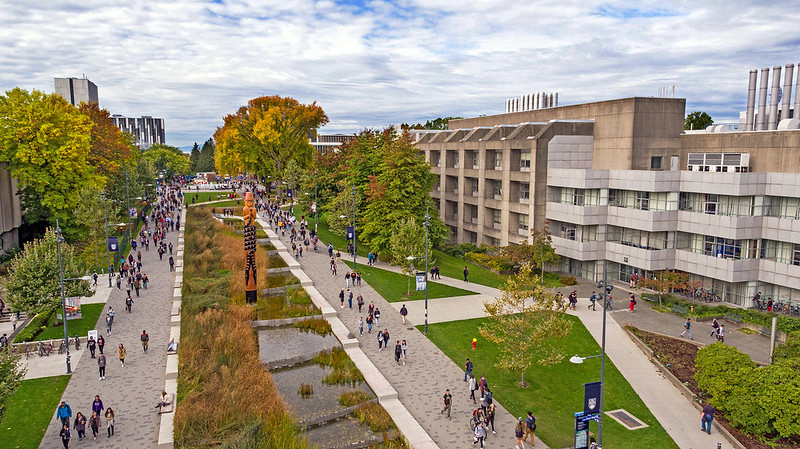The future of climate governance begins in this stream, where we introduce tomorrow’s environmental leaders to the ecological, social, political, and cultural knowledge needed to rise to the challenges of climate change.
Environmental crisis is one of the major interdisciplinary problems of our time. This means it takes great thinkers in all areas, from environmental studies to history, geography, political sciences, and the arts to address issues such as global warming, ecological injustice, climate migration, and fast fashion. In this stream, students will be introduced to the fascinating histories of how we arrived at this global tipping point, as well as to the newest research leading us toward more sustainable, equitable futures.
I chose the Coordinated Arts Program because it immersed me in a small yet diverse student group to collaborate and discuss a wide range of contemporary topics of global citizenship, while linking ideas between different discourses. My year in CAP consolidated my decision to major in international relations.
Courses: Term One
In their first term, students will enrol in CAP 100 (their writing course) as well as Environmental Studies, and Political Science. Students will learn how the environment and politics play a role in our globalized lives in relation to issues of power, government, consumption, inequality, race, and representation, among others–as well as gain a foundation for learning to read and write at the university level.
Analysis of and practice in academic research and writing in the social sciences and the humanities. Restricted to students in the Coordinated Arts Program. Credits count toward the Writing Component of the Faculty of Arts Writing and Research Requirement.
This course is not eligible for Credit/D/Fail grading.
For more information about the connections between CAP 100 and CAP 101A, please visit this page.
ENST_V 211-CAP (TTh 11-12:30) - Instructor: Dr. Loch Brown
The demographic, economic, ecological, and technological factors that underlie current environmental challenges, considering their effects to date and their possible impact in the future. Credit will only be granted for one of GEOG 211 or ENST 211.
POLI_V 100-228 (MWF 1-2) - Instructor: Dr. Spencer McKay
Political issues and case studies, drawn from Canadian and international contexts, will be used to introduce students to central debates and concepts of politics and political analysis.
Courses: Term Two
In their second term, students will take CAP 101A along with Geography, and History. They will learn about our globalizing and modernizing world and about how the environment shapes history. They will consider how literature, culture, media and language play a part in both shaping and resisting the structures of our world.
In this stream, CAP-V 101A section E02 also fulfills the Place and Power requirement.
Applications of research and writing skills in the context of literary, cultural, and media analysis. Topics integrate CAP stream themes and vary each year. Restricted to students in the Coordinated Arts Program.
This course is not eligible for Credit/D/Fail grading.
For more information about the connections between CAP 100 and CAP 101A, please visit this page.
CAP_V 101-A_E02 (MWF 10-11am) - Instructor: Dr. Anne Stewart
Reading Land, Reading power
Definitions of the relationship between land and power—ranging from the economic to the sacred—are the focus of this course. We will investigate power struggles centered on land and land use in "British Columbia," drawing on Indigenous, settler, arrivant, and immigrant perspectives.
HIST_V 207-227 (Th 11-12:30) - Instructor: Dr. Tina Loo
“Think globally and act locally” has been a slogan of the environmental movement since the early 1970s. But what does it mean to think globally, and historically, about the environment? How have global historical processes like industrialization, urbanization, and the agricultural revolution affected local environments? Local and individual actions have long played out in a global context. We will focus in particular on interrelated developments in climate, agriculture, energy, and cities.
GEOG_V 122-CAP (MWF 1-2) - Instructor: Dr. Trevor Barnes & Dr. Peter Hudson
The human geography of the modern world since 1945: global interdependence in economic geography, geopolitics, and cultural geography; consequences of modernization, including demography, urbanization and environmental effects; regional case studies; reactions to modernization.
Courses: Schedule
Preview how a week looks in the stream:
Sample Projects
Archival Research in UBC's Rare Books and Special Collections
Students spend one week examining readers’ responses to Joy Kogawa’s Obasan, a semi-autobiographical novel about the treatment of Japanese-Canadians during and after World War II. Students analyze these readers’ responses in relation to an argument by a literary scholar, and present their research findings in the form of a short paper. This project aims to help students understand how academics conduct primary research to produce new knowledge.
Global stories of belonging
For this assignment, the CAP classes partner with the City of Vancouver (in a project supported by CityStudio Vancouver and UBC’s Centre for Community Engaged Learning), to explore what civic engagement looks like. Students explore spaces in their own cities, discussing in small groups what factors impacted their sense of belonging in that space. They research public stories about the space, and they have conversations with people in their communities. Ultimately, each student produces a story about a social issue related to the space they have researched. In 2021, we created a multimedia map students’ to share experiences of belonging around the globe.


